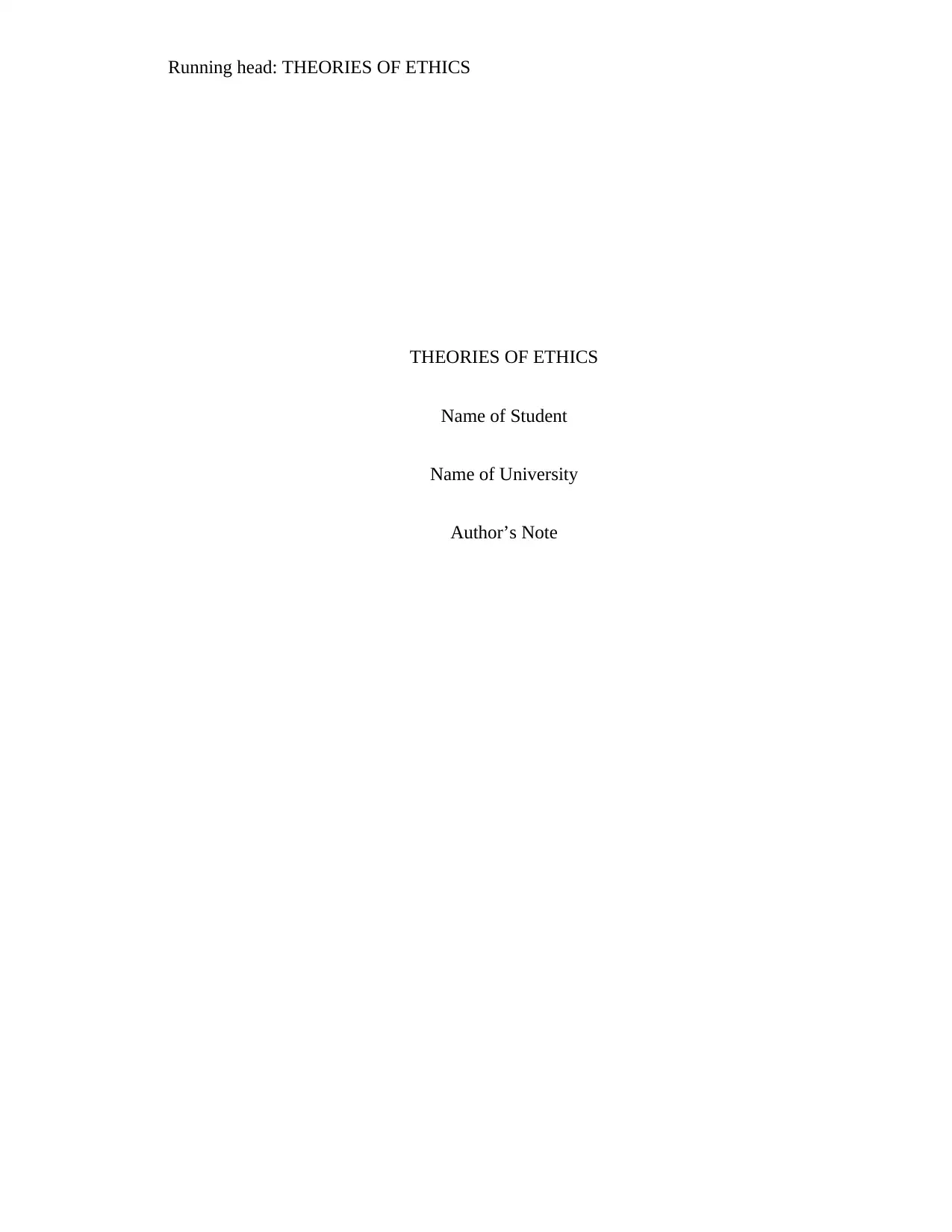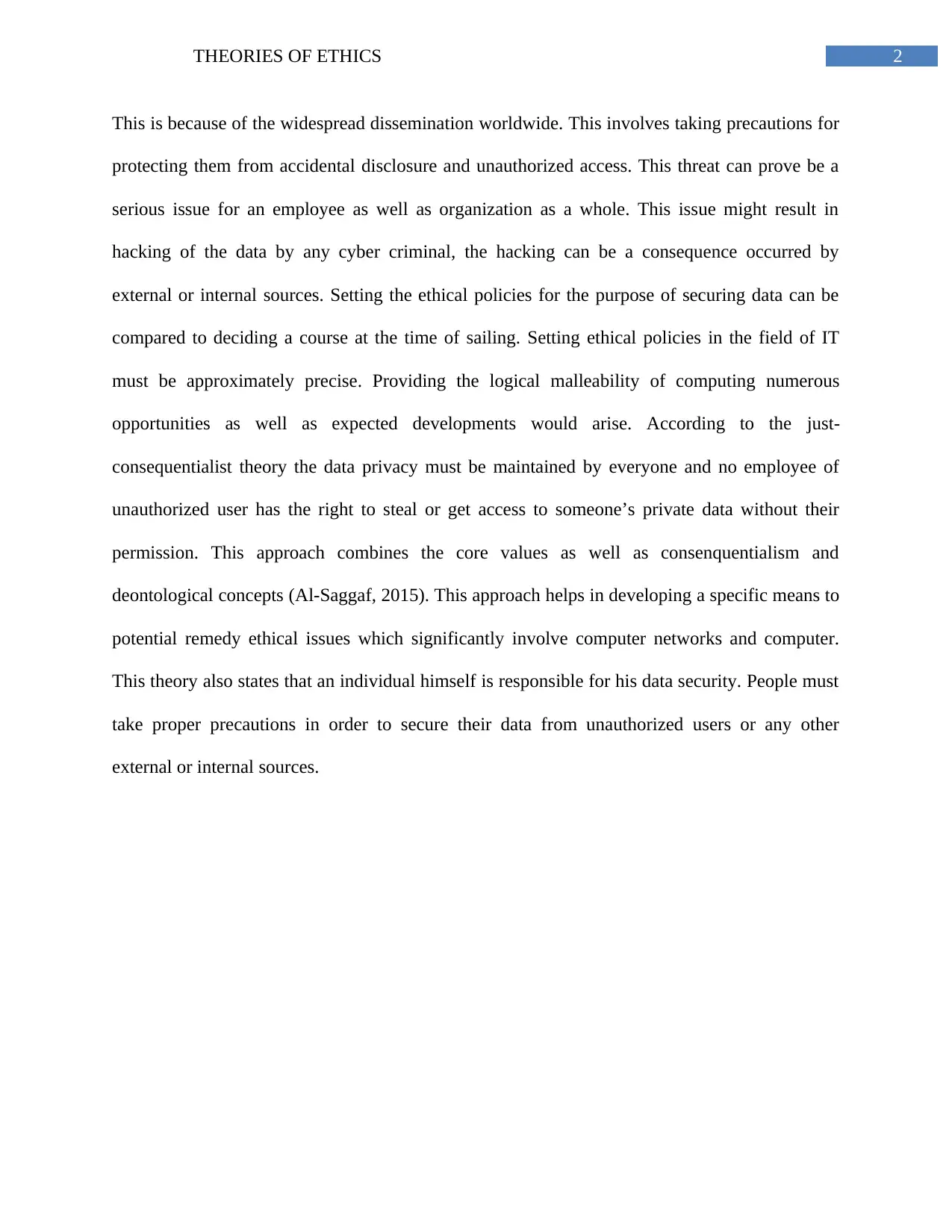Just Consequentialism: Integrating Ethics in Cyber Technology
VerifiedAdded on 2023/04/26
|4
|731
|141
Essay
AI Summary
This essay examines James Moor's just-consequentialist theory and its integration of utilitarian and deontological ethics. It begins by defining just consequentialism and explaining how it incorporates aspects of both utilitarianism, which focuses on maximizing overall good, and deontology, which emphasizes moral duties and rules. The essay then applies this theoretical framework to a contemporary moral issue in cyber technology: personal data privacy. It argues that the widespread exchange of data in the digital age poses a significant threat to individual privacy, potentially leading to unauthorized disclosure and misuse of personal information. Using the just-consequentialist lens, the essay emphasizes the importance of establishing ethical policies that balance the benefits of data sharing with the need to protect individual rights and prevent harm. The essay concludes by asserting that individuals also bear responsibility for securing their own data and taking precautions against unauthorized access.
1 out of 4











![[object Object]](/_next/static/media/star-bottom.7253800d.svg)